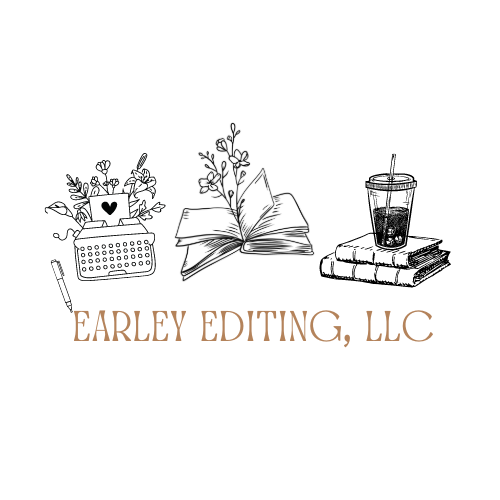The Role of AI in Writing and Editing: What Authors Need to Know
The rapid advancement of artificial intelligence (AI) has revolutionized industries across the board. Writing and editing are no exception. From automated grammar checks to AI-driven story generators, AI is becoming essential in an author’s toolkit. But how can authors make the most of AI while preserving the human creativity that lies at the heart of storytelling? Let’s explore the role of AI in writing and editing, its benefits, limitations, and what authors need to know to navigate this evolving landscape.
How AI is Transforming Writing and Editing
AI-powered tools are designed to enhance efficiency, creativity, and accuracy in the writing process. Here are some key ways they’re making an impact:
Grammar and Style Assistance
Tools like Grammarly and ProWritingAid analyze text for grammar, punctuation, and stylistic issues, providing suggestions to improve clarity and flow. These tools can act as a first line of defense against common errors.
Content Generation
AI systems like ChatGPT can generate ideas, outlines, or even full paragraphs of text based on prompts. They’re useful for overcoming writer’s block or brainstorming ideas.
Editing and Proofreading
Advanced AI can assist with developmental editing by identifying inconsistencies, overused words, or pacing issues. Tools like Hemingway Editor highlight areas where sentences are too complex or verbose.
Translation and Localization
AI-driven platforms such as DeepL make translating text into multiple languages faster and more accurate, helping authors reach global audiences.
Market Insights
AI tools analyze reader trends and preferences, offering insights into popular genres, themes, and keywords. Authors can use this data to refine their works for better market alignment.
The Benefits of Using AI in Writing and Editing
Efficiency: AI tools can speed up tasks like proofreading and formatting, giving authors more time to focus on creativity.
Affordability: For authors on a budget, AI tools offer a cost-effective alternative to hiring professional editors for basic tasks. However, AI cannot replace a human editor at this time due to a lack of efficiency.
Inspiration: AI can generate ideas or suggest alternatives that spark creativity and help authors overcome mental blocks.
Consistency: Automated checks ensure consistent tone, style, and grammar throughout the manuscript.
The Limitations of AI in Writing and Editing
While AI offers many advantages, it’s not without its flaws. Authors need to be aware of its limitations:
Lack of Human Creativity
While AI excels at pattern recognition, it lacks the emotional depth and originality that human creativity brings. It can’t replace the nuanced storytelling that resonates with readers.
Context and Nuance
AI may misinterpret context or provide suggestions that don’t align with the author’s intent. For example, it might flag dialogue as grammatically incorrect when it’s intentionally written that way for character authenticity.
Over-Reliance Risks
Dependence on AI can lead to a loss of personal voice. Authors should use AI as a supplement, not a replacement, for their unique style.
Ethical Concerns
Content generated by AI raises questions about authorship and originality. Authors need to ensure that their work remains authentic and doesn’t unintentionally plagiarize existing content.
How Authors Can Effectively Use AI Tools
Set Clear Goals
Use AI tools with specific objectives in mind, whether it’s polishing grammar, brainstorming ideas, or gaining market insights.
Combine AI with Human Expertise
AI can handle repetitive tasks, but human editors bring the creative and critical thinking needed for deeper manuscript refinement.
Maintain Your Voice
Review AI-generated suggestions critically, ensuring they align with your style and story vision.
Stay Updated
The field of AI is constantly evolving. Keep up with new tools and technologies to understand how they can benefit your writing process.
The Future of AI in Writing and Editing
AI is not here to replace authors but to empower them. As the technology becomes more sophisticated, it will likely take on more complex tasks, such as aiding in story structure or character development. However, the heart of storytelling will always require a human touch—the ability to evoke emotion, craft unique narratives, and connect deeply with readers.
AI has become an invaluable ally for authors, streamlining the writing and editing process while offering new avenues for creativity. By understanding its strengths and limitations, authors can harness AI tools to enhance their work without compromising their artistic integrity. The key is balance: let AI handle the technicalities while you focus on telling the stories only you can tell.
